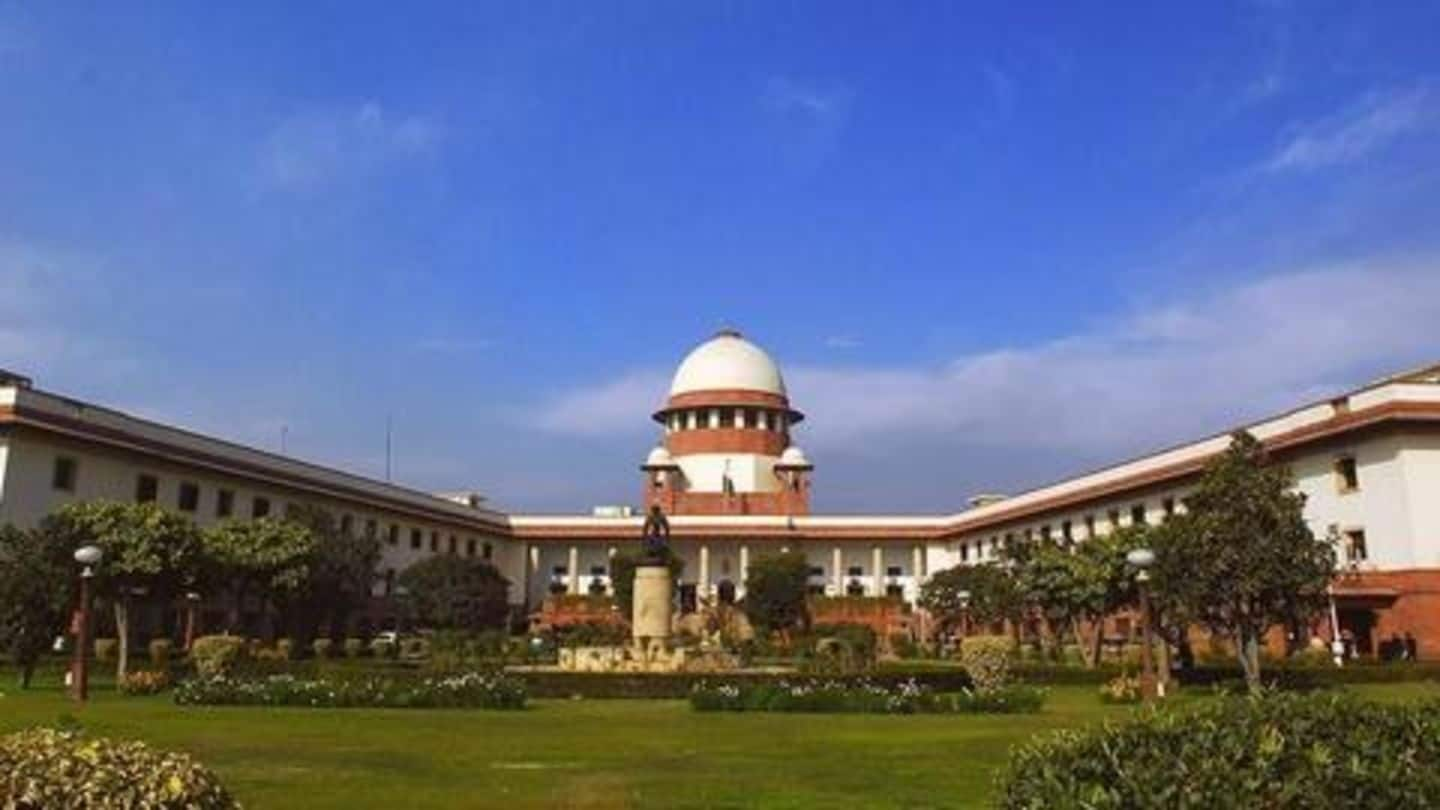
Supreme Court admits petitions challenging government's 'snooping order'
What's the story
The Supreme Court has admitted a clutch of petitions challenging the government's move to give sweeping powers to 10 Central investigative agencies to intercept and monitor data on computers. The apex court has now given the Ministry of Home Affairs (MHA) six weeks to file its reply to the petitions, which claim that the order violates privacy of citizens. Here are the details.
PILs
What we know about the PILs
As its stands, four separate public interest litigations (PILs) have been filed by lawyer Shreya Singhal, her co-petitioner and Trinamool Congress lawmaker Mahua Moitra, Supreme Court lawyer ML Sharma and others. These PILs allege that the MHA order violates Section 69 of the Information Technology Act, 2000, and the fundamental right to privacy. Earlier, only the MHA could scan emails and phone calls.
Quote
Singhal expresses her hopes about the order getting quashed
"The order by the Home Ministry violates privacy and so we wanted a stay on it. The court has issued notice to the Home Ministry... After six weeks the Supreme Court will look into our prayer on staying the notification," Singhal told NDTV.
Powers
What powers have been granted to which agencies?
In an order dated December 20, the MHA granted powers of "interception, monitoring and decryption of any information generated, transmitted, received or stored in any computer." The agencies empowered are Intelligence Bureau, Narcotics Control Bureau, Enforcement Directorate, Central Board of Direct Taxes, Directorate of Revenue Intelligence, CBI, National Investigation Agency, Cabinet Secretariat (R&AW), Directorate of Signal Intelligence (in Jammu and Kashmir, North-East and Assam only), and the Delhi Police Commissioner.
Circumstances
Under what circumstances can the powers be used?
The aforementioned powers were granted under Section 69 (1) of the Information Technology Act, 2000. The Section allows the Central government to initiate investigations in the "interest of the sovereignty or integrity of India, defense of India, security of the state, friendly relations with foreign states or public order or for preventing incitement to the commission of any cognizable offence relating to above or for investigation of any offence."
Implications
What the order means for people
This essentially means that the 10 agencies named in the order have the complete authority to snoop on any data on any computer owned by individuals/entities under their scanners. Further, the individual/entity whom the computer belongs to is expected to cooperate with these agencies when an investigation is launched. In the event on non-cooperation, individuals could face up to seven years in prison.
Political storm
A political storm had erupted over the order
Given the scope of the order, the Opposition had come down heavily of the government, and had accused it of trying to create an Orwellian surveillance state. However, the MHA had responded by saying that the powers granted had already existed during the UPA regime, and the government had merely listed the agencies that could make use of the powers.
Quote
The MHA's response to the Opposition's claims
"Similar provisions and procedures already exist in The Telegraph Act along with identical safeguards. The present notification is analogous to the authorization issued under The Telegraph Act. The entire process is also subject to a robust review mechanism," the MHA had said.
RTIs
RTIs had revealed extent of 'snooping' during the UPA regime
Subsequently, two RTIs, one dated 2011 and the other 2013, revealed the extent of 'snooping' that went on during the UPA regime. In the 2011 RTI response, reported by Republic World, it was found that the Congress-led UPA government itself allowed the interception of 7,500-9,000 calls per month. The 2013 RTI response reinforced the 2011 findings, adding that 300-500 emails were also intercepted monthly.
Concerns
Regardless of the row, concerns about privacy are indeed legitimate
Regardless of the row over the order, and questions of who created the framework to allow for mass surveillance, concerns regarding the order's implications on citizens' privacy are indeed legitimate ones. Now that the Supreme Court has admitted the petitions, it remains to be seen what the apex court makes of the order and its implications on the fundamental right to privacy.